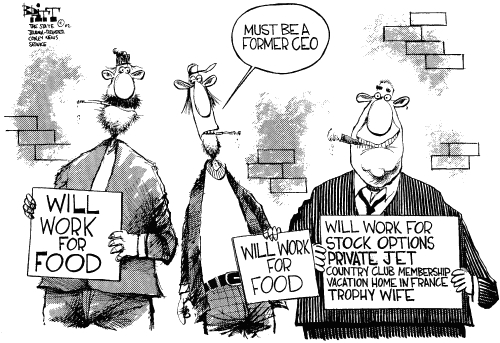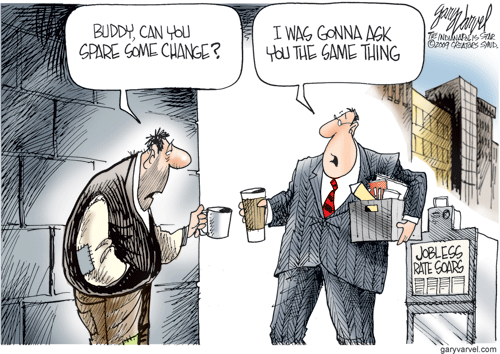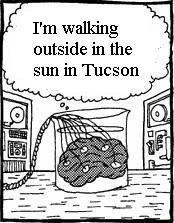| Original Source - Telegraph (Adams Cartoonist) |
So the reason for these cuts that I am sure you have had drilled into your mind that these are for the 'good of the country.' Merely use of propaganda and use of non-relevant jargon to make you believe so. I am sure you've heard of things like 'The Debt Crisis', 'The country is broke!' and 'We need to make ourselves competitive.' So to sum up the reason that has been drilled into our heads are that the cuts are to ensure we can pay back the debt that we owe and secure a low interest rate on doing so. However, is this really the reason for doing so or is this just convenient for the Neo-Liberal and Neo-Conservative ideology that was shaken by a slight change in consensus? (Apologies for the technicalities.)
Our political neutrality is being manipulated by irrational reasoning, we are simply given statistics of large negative numbers and suddenly we go into panic, lose our heads and begin to agree to cut left right and centre as if we were puppets on a string. So why do I say that having this 'Debt Crisis' is actually beneficial for the current government? Well I have already argued this has led to us being controlled like puppets on a string, and cuts in government expenditure on things such as the welfare state is highly favoured policy of the ideology that drives the current government. If for instance we were serious about the debt crisis we should spend out of recession and cut in booms, cut all factors of government expenditure and raise the taxes for the very wealthy.
But this is not the case because this does not fit with their ideology. Rather they would appear to be making significant 'savings' when in fact they are targeting cuts to dismantle the foundations of the welfare state. I am sure that if in the long run these cuts would make very little if not no contribution to national saving (by significantly reducing income) then in hindsight this government would still go ahead, because they are motivated by ideology, not necessity.
'The rich get richer and the poor get poorer - That's what I believe only because I'm rich'






